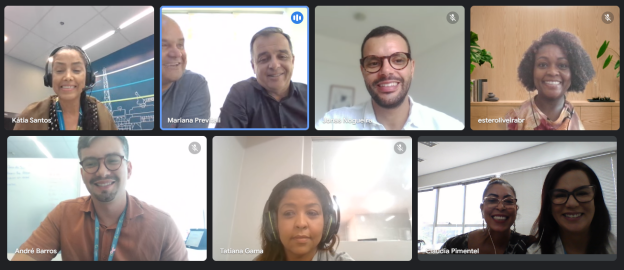Contributing to expanding access to the Our Culture collection, the Norberto Odebrecht Foundation (FNO) has just launched the digital...
Partnerships strengthen family farming in Sana communities
DATE: 02/28/2024

In 2022, the Norberto Odebrecht Foundation’s Social Program, PDCIS, was reapplied to communities in Sana, a district in the mountainous region of Macaé/RJ. Aimed at promoting sustainable development and social inclusion in the region, the PDCIS in Sana benefits 27 local farmers, contributing to economic growth in harmony with the environment.
The initiative is being carried out in partnership with Ocyan, Macaé City Hall, the Sana Family Agriculture Producers Association (APAF) and the Tororó Sana Environmental and Cultural Heritage Protection Association (APPAC). Last Thursday (22), representatives of these governances took part in an online meeting to align the next steps, opportunities and challenges in implementing the program.
On the occasion, the Municipal Secretary for Economic Development, Rodrigo Vianna, highlighted some of the municipal administration’s achievements that will directly contribute to the implementation of the PDCIS in Sana. Among the actions mentioned were the creation of the family farmers’ cooperative, the Food Distribution Center (CEAFA) and investments in paving works, which will facilitate the flow of production.
Eduardo Jardim, Secretary of Agroeconomics, also pointed out that the city council has invested R$7 million in machinery and R$700,000 in fertilizer and limestone for the program to strengthen family farming. According to him, another benefit for rural producers in the Sana communities will be the distribution of 21,000 banana seedlings, a partnership with the Rio de Janeiro State Department of Agriculture. The return on this investment for the beneficiaries is the supply of food for school meals in Macaé’s public schools. “The government is working to make progress on other needs that seek to strengthen this network,” he said.
Since its inception, PDCIS in SANA has benefited eight local communities, spread over 27 families, 42 properties and 38.65 hectares of land. Cristiane Nascimento, responsible for Sustainability and Partnerships at the Norberto Odebrecht Foundation, pointed out that farmers are already feeling improvements in their productivity. “We are working on improving various crops, such as bananas, plantains, yams, citrus fruits, vegetables, coffee and beans,” he said.
Ocyan’s Social and Environmental Responsibility specialist, Kátia Santos, also emphasized the scope of this initiative. “The program benefits the community with educational activities, sustainable development, environmental conservation practices and access to innovations and technologies to improve planting,” he concludes.



No comments